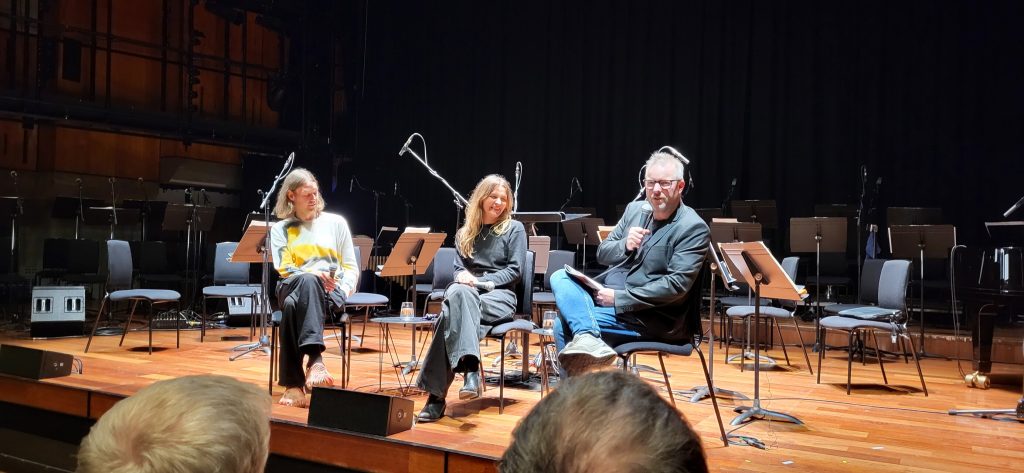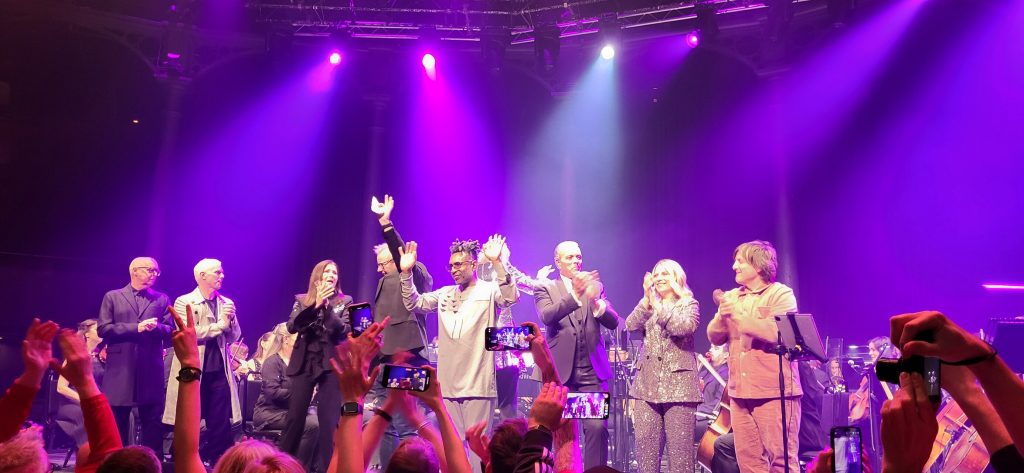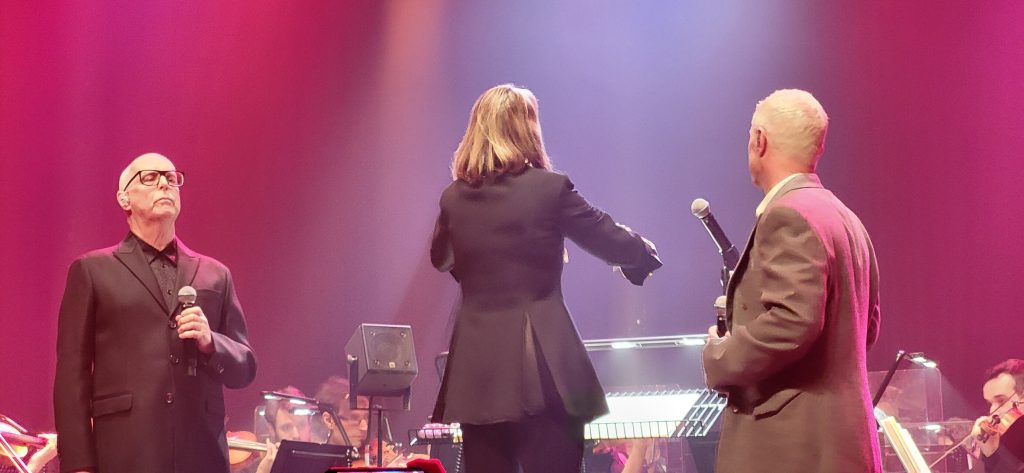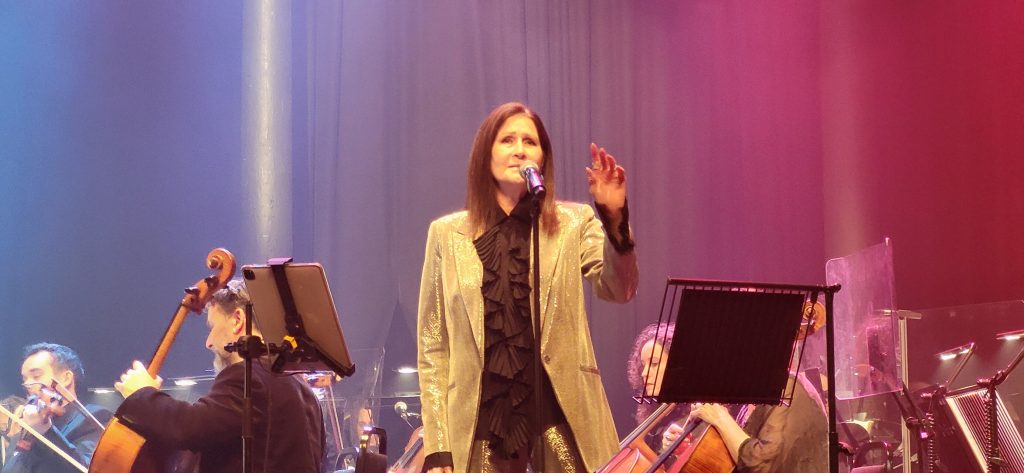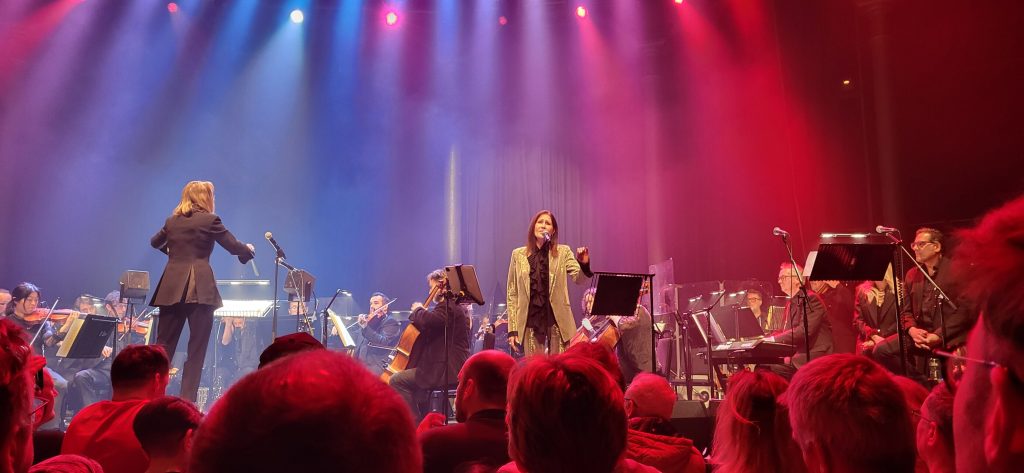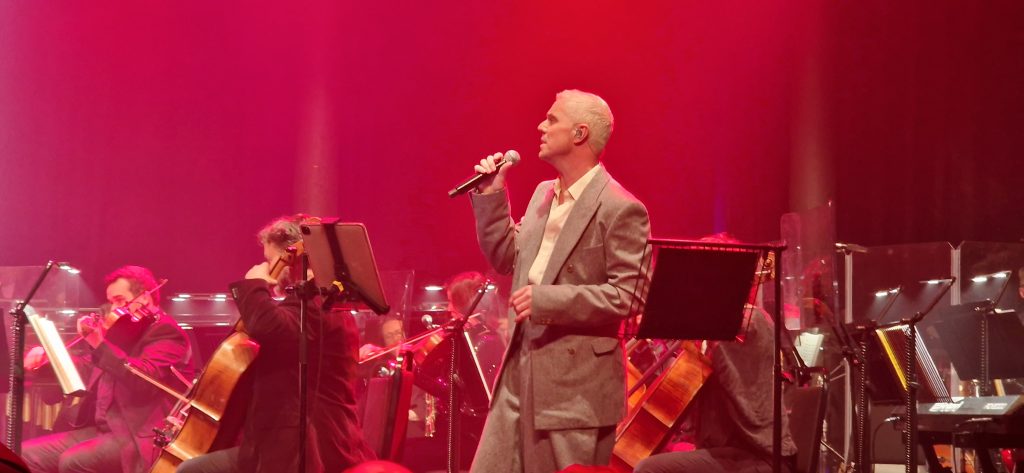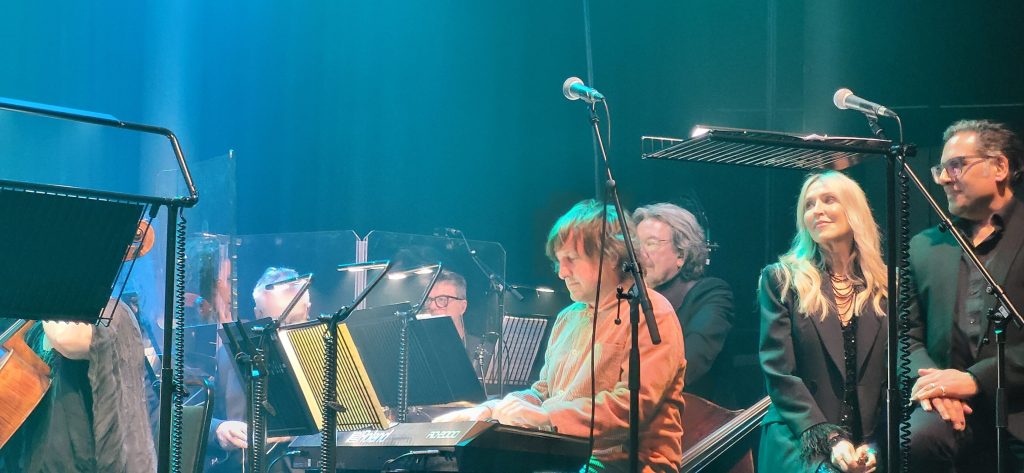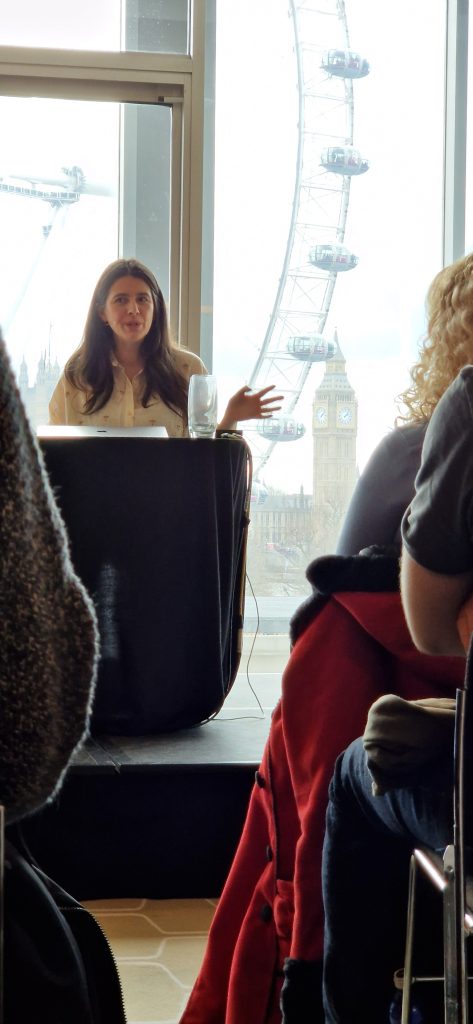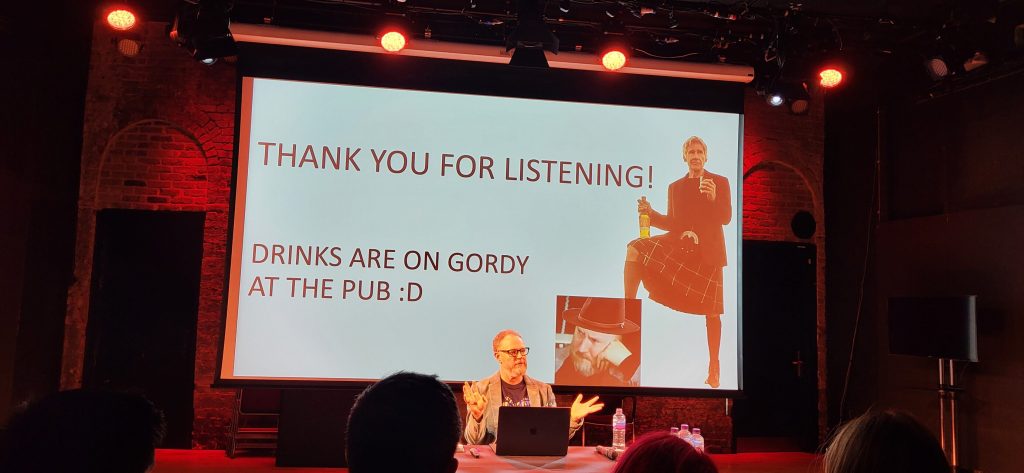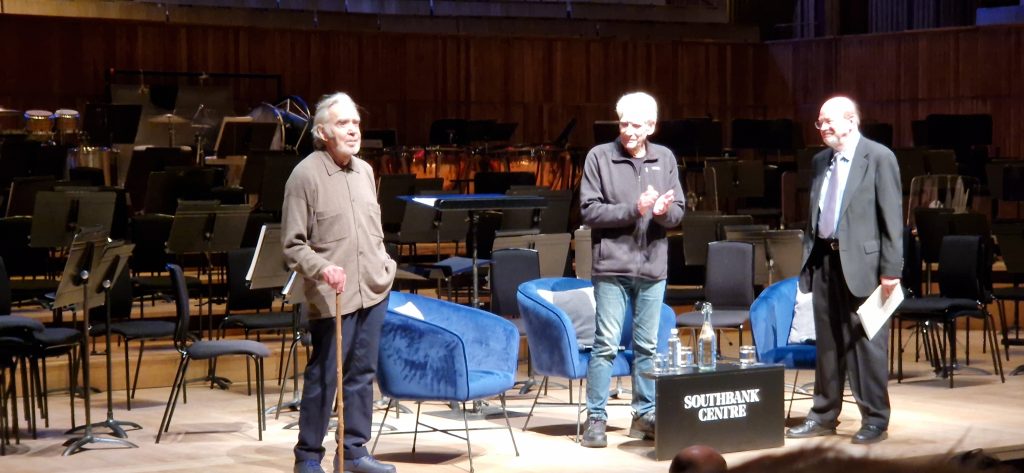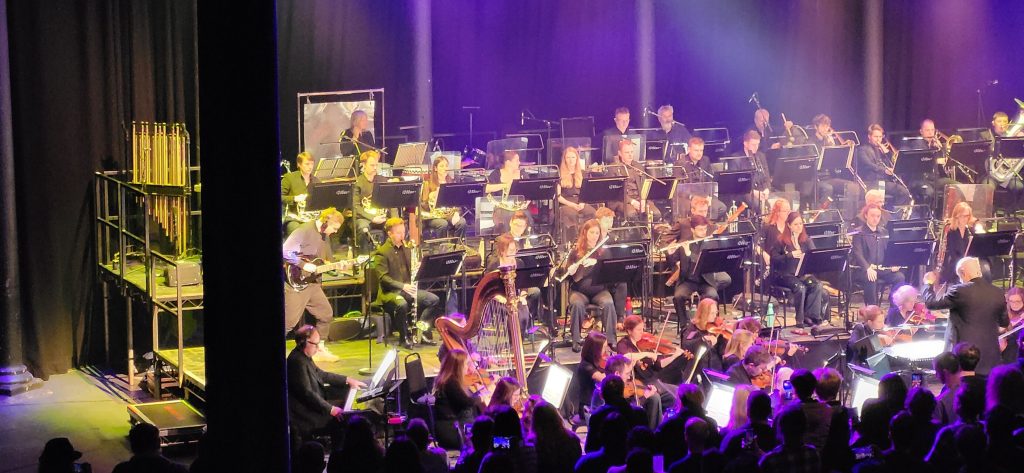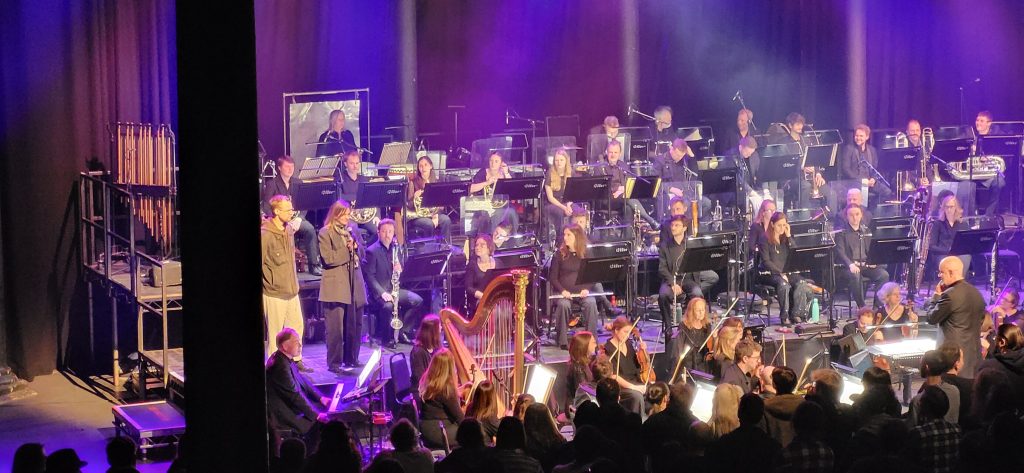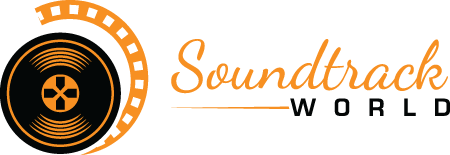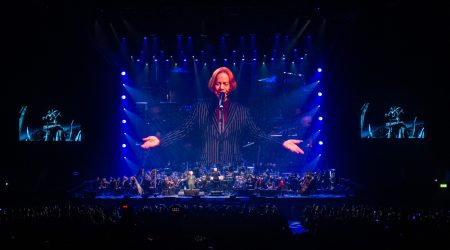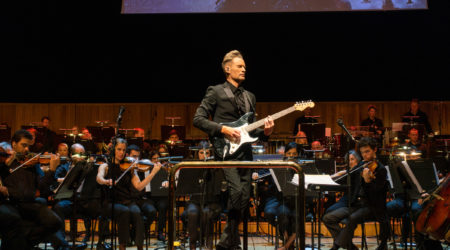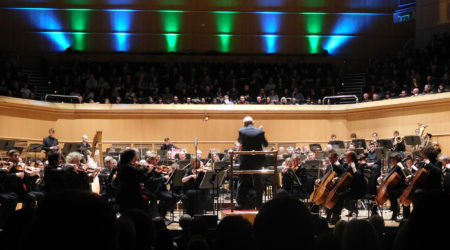Editor’s note: This is a guest report written by Jorg Oostendorp, who went together with Maurice Boeijen to the first edition of the London Soundtrack Festival. Anton Smit translated the text into English.
March 19, 2025, was the kickoff of the first London Soundtrack Festival. During the festival there were various concerts, panels, master classes and films in concert. The festival’s guest of honor was Howard Shore, known for The Hobbit, The Lord of the Rings, The Fly, and so on. Howard Shore was presented with the first LSF Christopher Gunning Inspiration Award during the gala concert.
Saturday, March 22
For us, the festival actually started on Friday the 21st, but due to the fire at Heathrow Airport, we were unable to fly. Fortunately, we were rebooked to a flight on Saturday morning. Unfortunately, this did cause us to miss Harry Gregson-Williams’ master class. Sadly, we also missed the Composers Panel Event with all the guests, which took place on Friday evening at NBCUniversal’s headquarters in London.
On Saturday, March 22, it could really start for us. On that day we went to Natalie Holt’s master class first. That was an interesting session in which she explained how she developed the music of Loki. Then to an interview with David Cronenberg and Howard Shore, conducted by Jon Burlingame. The interview was fun and interesting. You can tell that Howard Shore is coming of age. Fun anecdotes were told during the interview from the 40 years David and Howard have worked together. There were also several pieces of music played from The Fly and Crash, among others. Without orchestra, but with film.
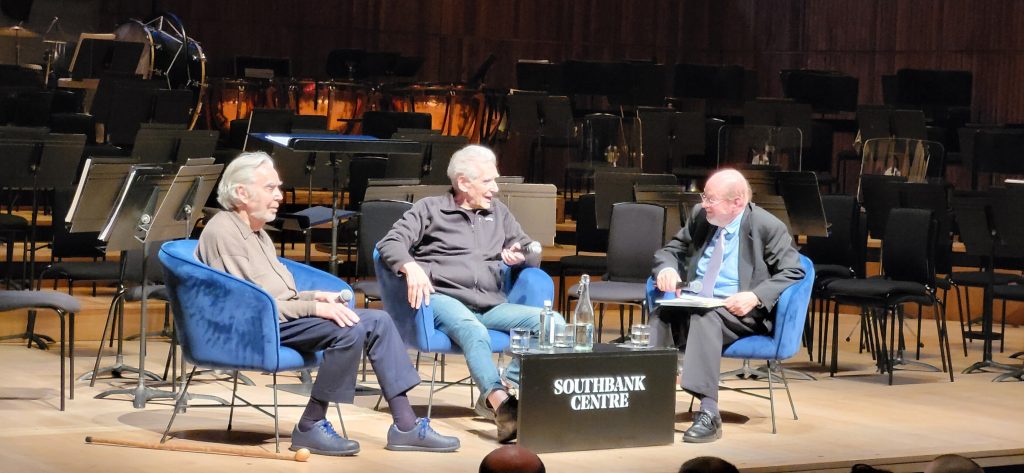
In the evening was the big gala concert at the Royal Festival Hall, with the London Philharmonic Orchestra conducted by Ben Palmer. Several special pieces of music were performed. One was the world premiere of the music of Loki. This was played live by an orchestra for the first time. For this, even Marvel management, including Kevin Feige, was present. Stephen Barton played the massive organ in the hall during the Picard Suite, and Harry Gregson-Williams himself conducted his suite from Gladiator II. And this occurred in the first half of the concert alone.
After intermission, it was time for the music of Howard Shore. A special experience made even more special by the fact that the music of The Lord of the Rings was announced by Gandalf Himself, Sir Ian McKellan. Always a special moment to see this man on stage.
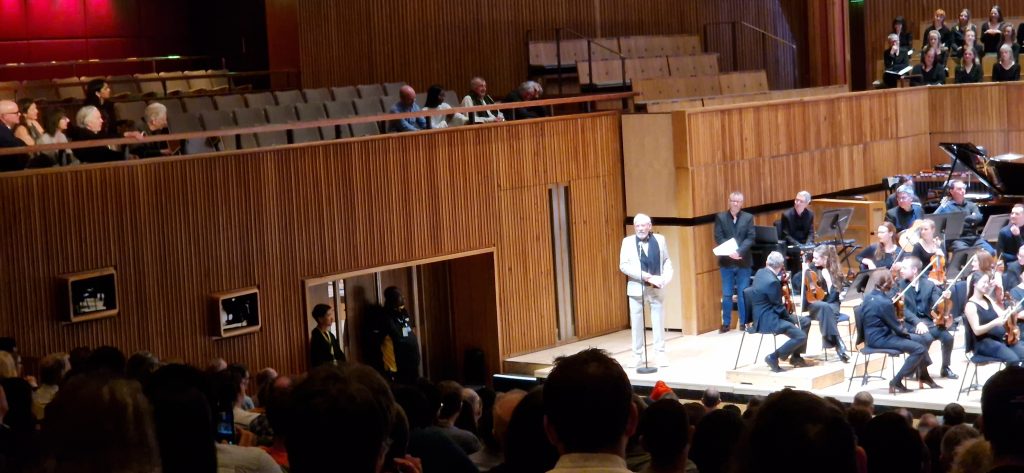
The following pieces of music were played during the gala:
Before intermission:
- Anna Meredith – “Nautilus” from Eighth Grade
- Natalie Holt – Music from Loki
- Stephen Barton – Picard Suite
- Anne Dudley – American History X
- Harry Gregson-Williams – Suite from Gladiator II
- Hildur Gudnadóttir – “For Petra” from Tár
- TV Quiz Theme Suite arranged by Iain Farrington
After intermission, only music by Howard Shore:
- The Fly – Suite
- Dead Ringers – Main TitleEd Wood – Main Title
- The Aviator – Suite
- The Hobbit – The Noble Wood (I Roderyn)
- M.Butterfly – Main Title
- The Lord of the Rings: The Fellowship of the Rings for Symphony Orchestra and Chorus
- The Lord of the Rings: The Return of the King – The Lighting of the Beacons
During this gala, the Inspiration Award was presented to Howard Shore by David Cronenberg.The concert was a memorable ending to our first day at the festival.
Sunday, March 23
Sunday was devoted entirely to game music at The Roundhouse. During the day, there were three master classes by Gordy Haab, Stephanie Economou and Stephen Barton. However, the program had to be changed. Stephanie had unfortunately fallen victim to the fire at Heathrow. Her plane, like Gordy Haab’s, had to return to Los Angeles midway to London. Once back there, she unfortunately could no longer book a new flight to get to London in time. Something Gordy Haab fortunately still managed to pull off.
Gordy was first in line. Due to the chaos after the delay, he had assigned an employee of his called “ET” to put the presentation together. As a result, there were all sorts of bad childhood photos of Gordy throughout the presentation. This made for hilarious moments. Gordy went into detail about his entire career. How he got started, how he writes the music and the process around it. The focus was mainly on the Star Wars games, but he also paid attention to his new game, Indiana Jones and the Great Circle.
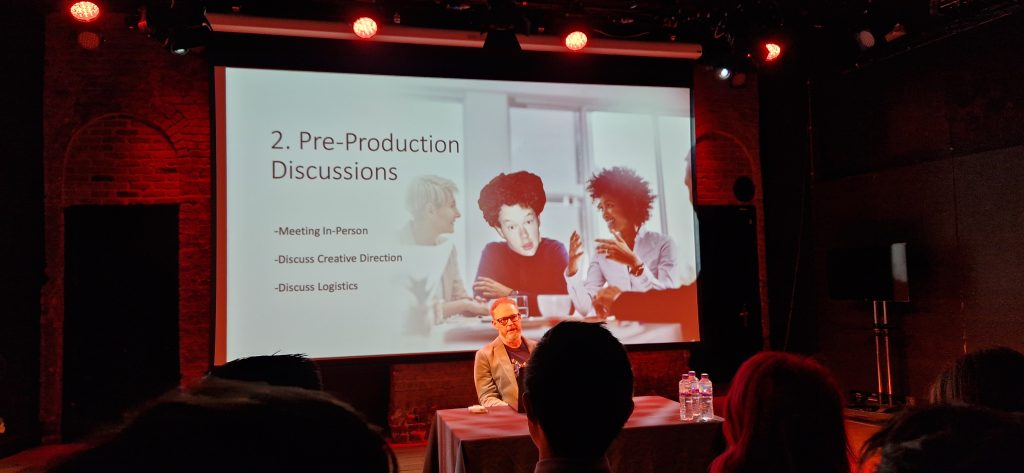
Then it was supposed to be Stephanie’s turn, but her place was taken over by Simon Landry, music supervisor for the Assassin’s Creed games. Stephanie worked a lot with Simon on the game Assassin’s Creed Valhalla: Dawn of Ragnarok. Stephanie did have a video message apologizing for her absence, but indicating that we are in good hands with Simon. That was partially true, however. His story was more technical, and from his role as manager, than really about the music itself. It was an interesting story, but the manner of presentation, however, was not very stimulating.
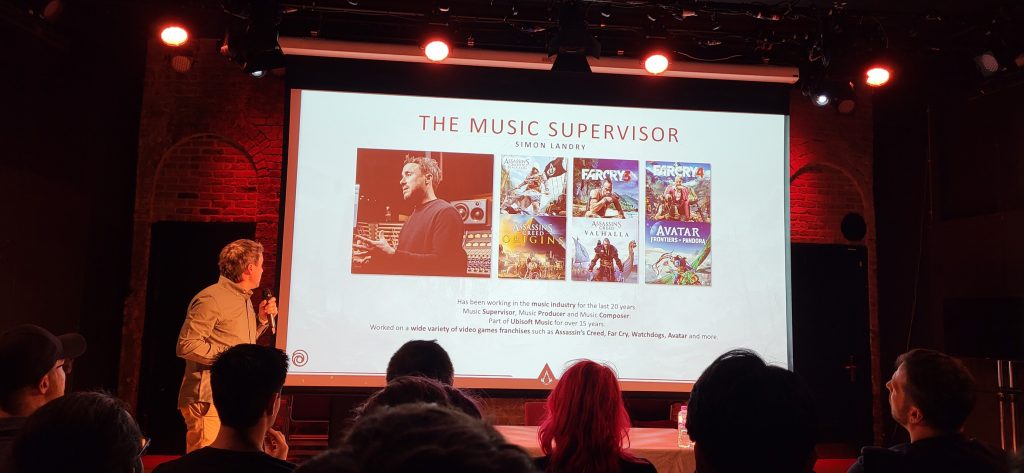
The last up was Stephan Barton. His presentation was something completely different. He guided us through the entire history of game music. That starts somewhere in the 1950s with sounds from computers having a function, to the first computer games like Pong, Mario and Prince of Persia, to most modern scores for Star Wars and Indiana Jones. It was a fun history lesson, with Stephen increasingly relating it to his own career from the late 1990s onward. The cool thing was that Harry Gregson-Williams was also in the audience, who is Stephen’s mentor.
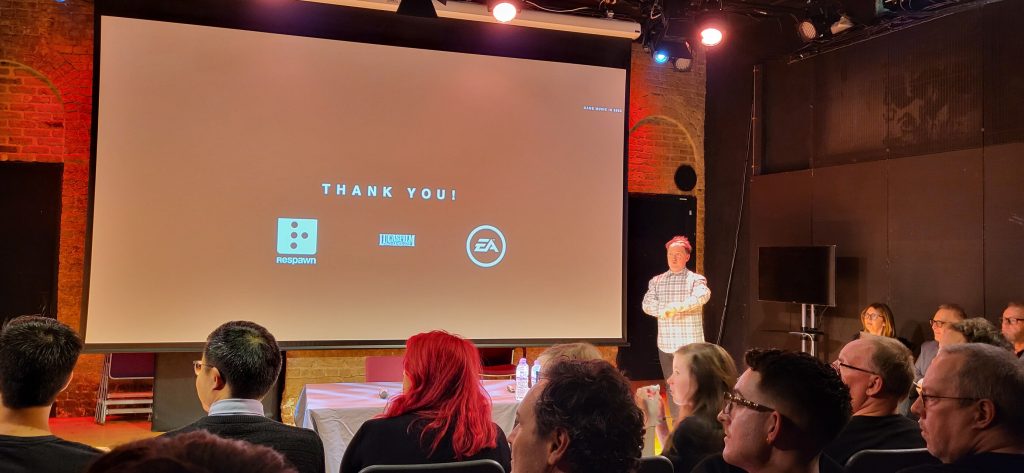
After the master classes, there was a panel in the main hall of The Roundhouse featuring all the composers whose music would be played at the State of the Art: Games Music Concert. They were:
- Gordy Haab
- Harry Gregson-Williams
- Borislav Slavov
- Stephen Barton
- Sam Slater
- Hildur Guðnadóttir
- Ludvig Forssell
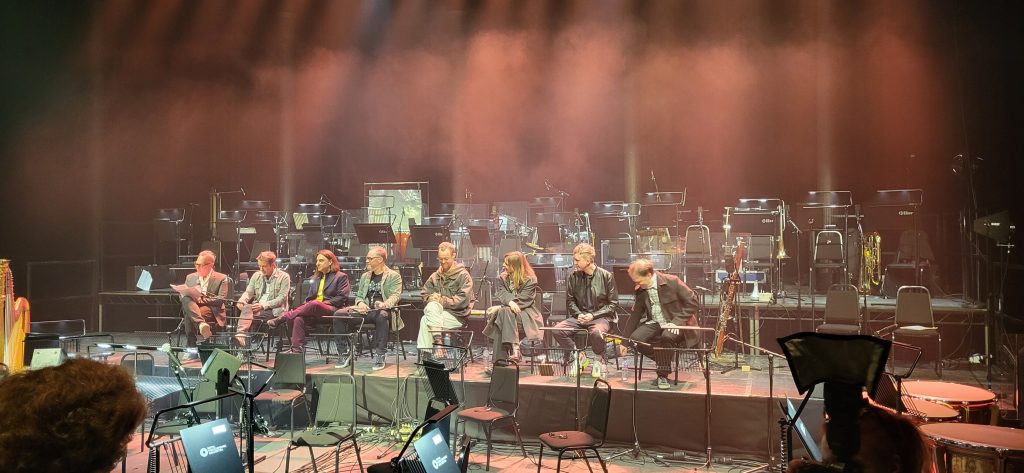
Stephanie was also supposed to be on the panel, but of course she was absent. The panel was led by Steve Schnur, director of Electronic Arts, and it was an enjoyable panel, but nothing special. Afterwards, there was an autograph session.
Then the closing event of the day, the concert. That was spectacular! Each piece was introduced by its respective composer. That gave the concert a personal touch. There was a special performance by Ludvig Forssell. After his music from Death Stranding was played, he himself gave an encore with music from Death Stranding 2. To cap off the evening, there was the world premiere of the suite from Indiana Jones and the Great Circle. Very worthwhile.
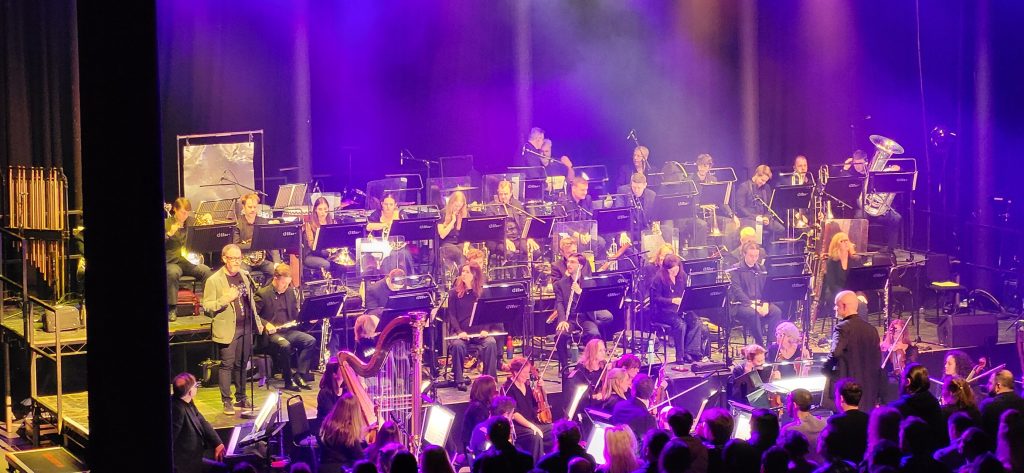
During the concert, music from the following games was played:
- Gordy Haab – Indiana Jones and the Great Circle
- Stephanie Economou – Assassin’s Creed Valhalla: Dawn of Ragnarok
- Borislav Slavov – Baldur’s Gate 3
- Gordy Haab, Stephen Barton – Star Wars Jedi: Survivor
- Harry Gregson-Williams – Metal Gear Solid
- Stephen Barton – Titanfall 2
- Stephen Barton – Apex Legends
- Hildur Guðnadóttir, Sam Slater – Battlefield 2042
- Ludvig Forssell – Death Stranding I and II
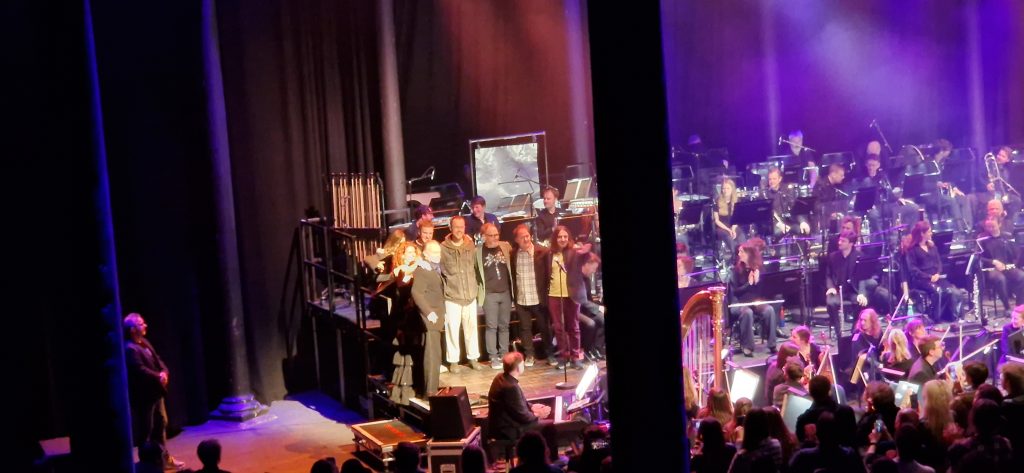
Monday, March 24
Monday was a lot quieter. We only went to the Talk: Music in Prime Time – A History of TV Themes and Scoring with Jon Burlingame at the Barbican Centre. He was being interviewed by Tommy Pearson, the festival’s artistic director. We did not have high hopes for the interview, but on some recommendation, we went there anyway. We did not regret that. The interview was because of Jon’s new book, ‘Music in Prime Time’. Music for TV series is a great passion of Jon’s. TV tunes were frequently played during the interview. The great thing was that Jon really enjoyed it. It was nice to see how passionately Jon talks about this genre. The interview was over all too quickly.
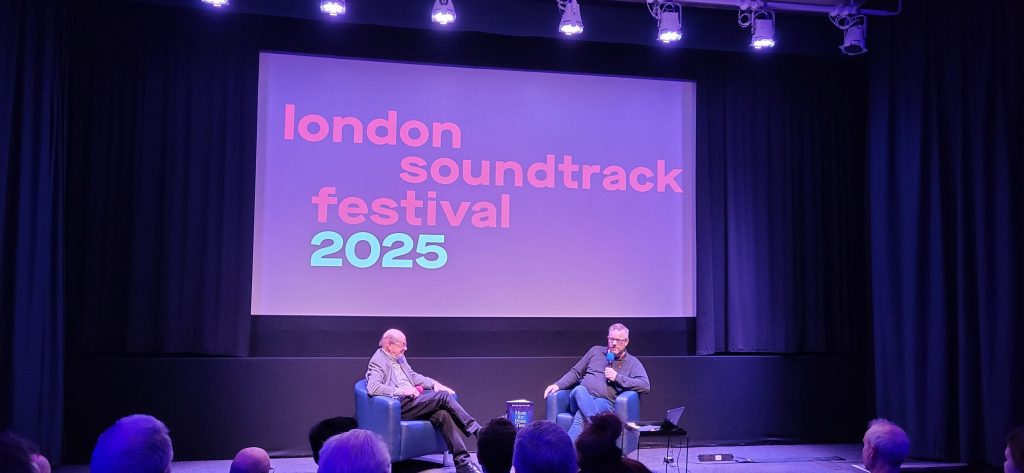
Tuesday, March 25
The program on Tuesday was actually empty for us, but after our experience on Sunday at The Roundhouse, nonetheless, we decided to go to the Great Movie Songs concert. The orchestra was conducted by Anne Dudley and special guests included Neil Tennant (Pet Shop Boys) and Jake Shears (Scissor Sisters). What made the evening special were the songs of Henri Mancini, sung by his daughter Monica Mancini. She sang three songs of which Moon River was the only one we knew. The other two were special surprises sung very beautifully by Monica. The performances by Tennant and Shears were superb, as were those of the other performers, with the big surprise being Daniel Pemberton. He played the keyboard to his song from The Trial of the Chicago 7, sung by Louise Dearman. That was a special performance. All in all, a successful concert.
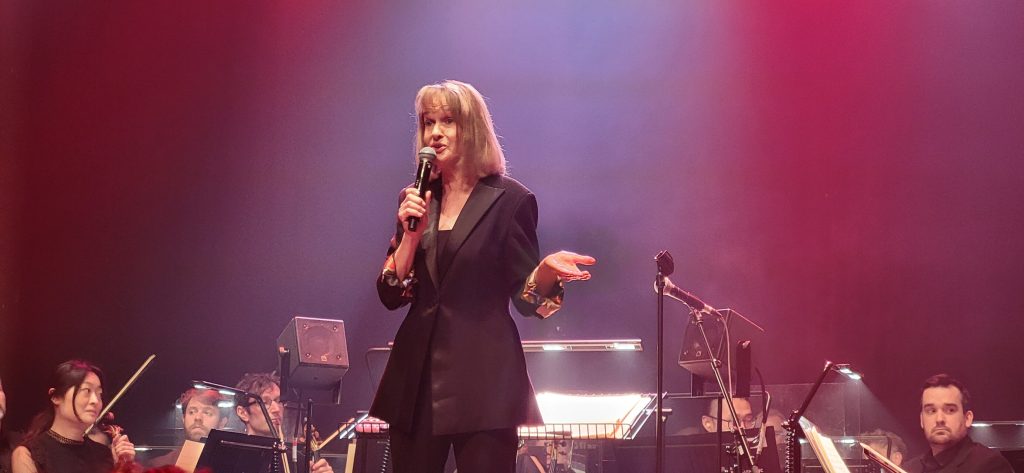
Wednesday, March 26
Wednesday was the last day of the festival. For us, only Hildur Guðnadóttir’s concert at The Queen Elizabeth Hall was on the program. Beforehand, there was a Q&A with Hildur and the conductor Robert Ames, led by Tommy Pearson. That was a fun interview about how the music is created and the special instruments used.
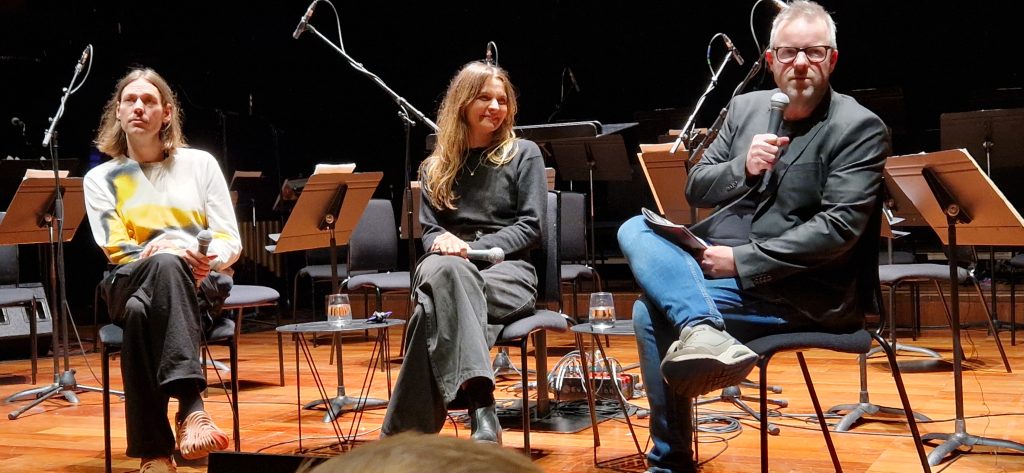
The concert itself was a remarkable experience. Hildur’s music is beautiful, although it is minimalist and experimental. This also took some time to get used to, but the music became more alive because of the musicians’ enthusiasm. Well-known and also unknown pieces by Hildur were performed. She herself also played several of her pieces on a specially made Trench cello. In addition, there were three pieces of music by composers with whom Hildur has a special connection. All in all, it was a memorable experience. Hildur indicated during the concert that she would soon be releasing a new album of her own work and would be giving concerts afterwards. I am curious to see what those concerts will be like.
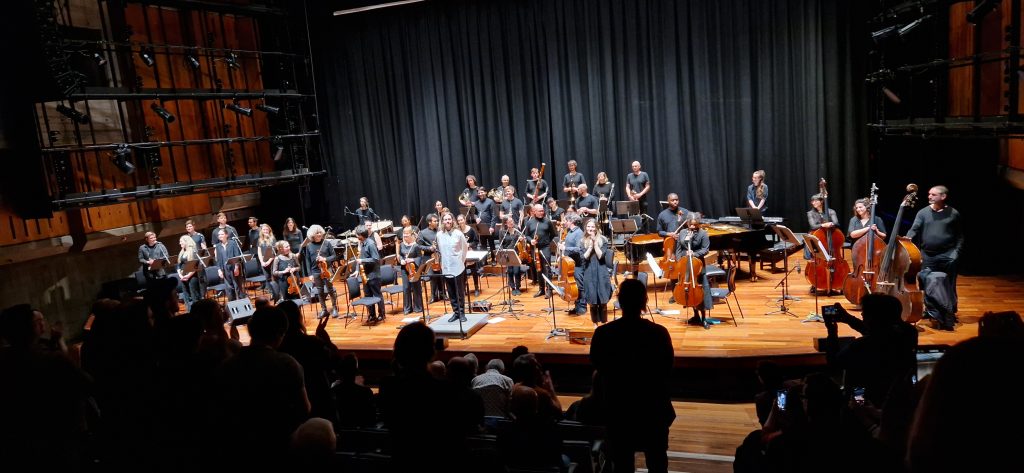
This concert was a beautiful ending to the London Soundtrack Festival.
Conclusion
The first edition of the festival was definitely successful. It was a packed program with something for everyone. The difference with other festivals we have known so far is that there are no awards. Other than the LSF Christopher Gunning Inspiration Award, the festival is not about the awards but the music and the composers. Another big difference from other festivals: there was no screen with images during the concerts. Whether this was due to budget restrictions or not, it ensured that the music was the primary focus.
We did not go to the various “films in concert” screenings during the festival. Each film was introduced by the respective composer. We heard afterwards that these were fantastic experiences. There were screenings of Tár, Gladiator II and The Lord of the Rings: Fellowship of the Ring, among others. Maybe something for next time.
Tommy Pearson has dropped hints that there will be another edition in 2026. If that is the case, we will definitely go there again.
Something that should be mentioned is that it is not a cheap festival. Each concert costs about 70 euros per person, and you have to pay about 25 euros for some of the master classes. Then, of course, there are the costs of the flight, hotel and food and drinks in London. That’s certainly not cheap.
But despite that, the London Soundtrack Festival is a splendid addition to the existing festivals and is highly recommended.
More photos
